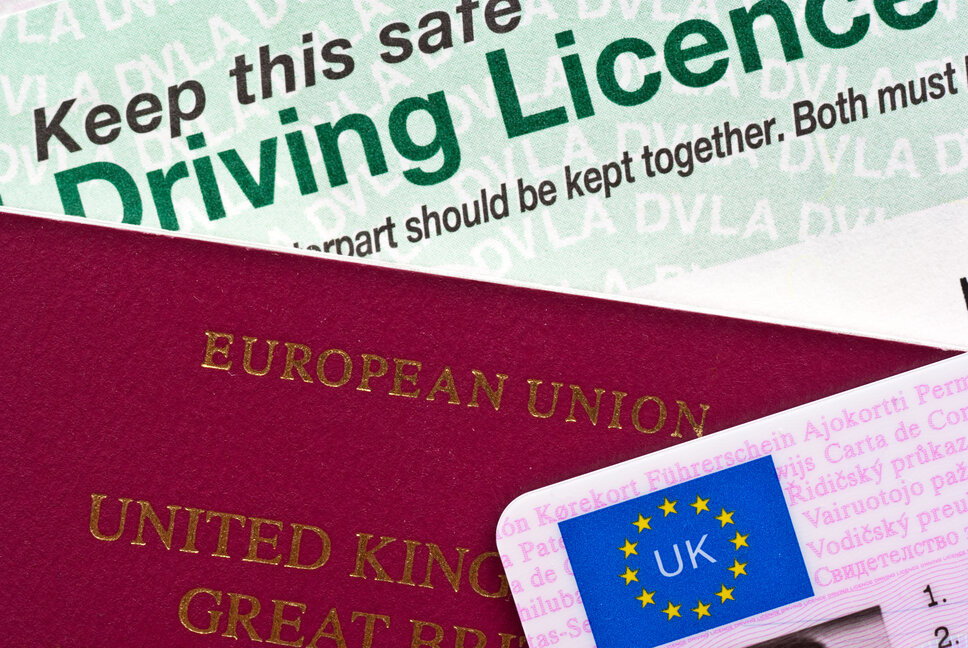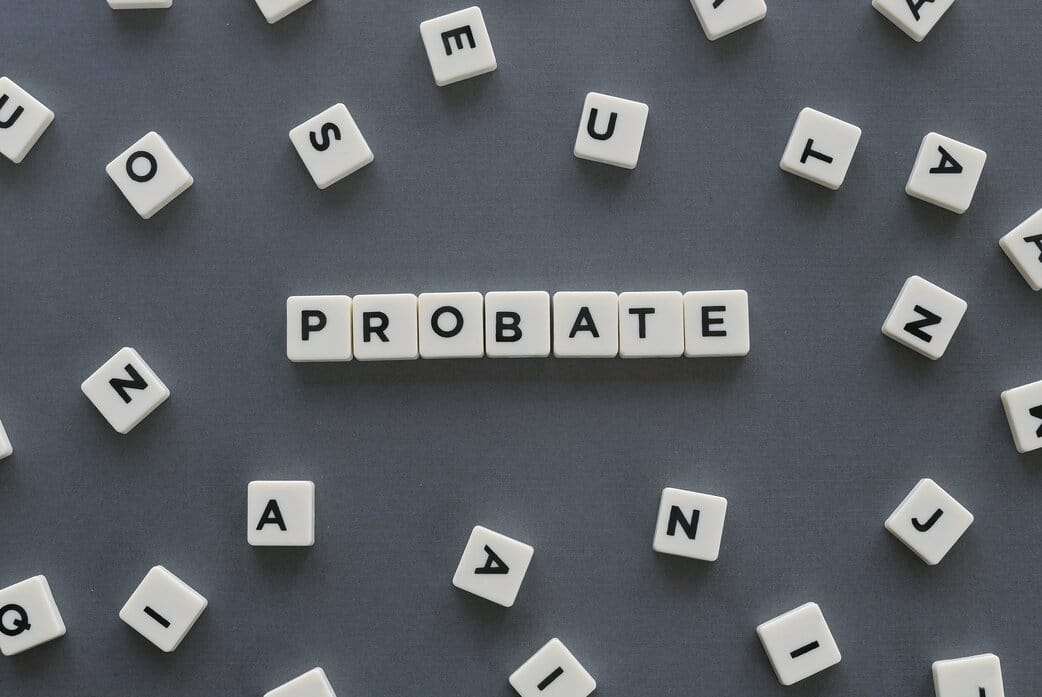Jasmine Birtles
Your money-making expert. Financial journalist, TV and radio personality.

It’s a tragic time when someone dies – but it also comes with a lot of paperwork. If you’ve been assigned executor of a will, there’s a lot of things to do. It can be overwhelming and knowing where to start is often confusing.
Use this checklist to make sure you’ve got everything covered, in (roughly) the order you need to do it.

The very first thing you need to do is register the death. There is a certain order in terms of who should do this:
It’s a legal requirement to register a death – not doing so is a criminal act.
You need to register a death within five days of it happening (with a nine-day extension possible if a medical certificate is provided to the register office within the five days). If the coroner is investigating the cause of death, the five-day rule may not apply and the funeral will be delayed.
You need to inform the register office local to the person’s home (if they died at home) or the district of the hospital or nursing home where they died. Once registered, you’ll receive a green form that confirms burial or cremation can go ahead.
Some people will have funeral plans in place – the details of which are often kept with a copy of the will. The plans may be paid up already or not. If the funeral hasn’t been paid for, you will need to make these payments and reclaim the costs. The costs can either be reclaimed from life insurance policies held by the person who died, or the value of the estate.
You may need to request some costs are deferred by the funeral parlour or other service providers. However, deposits will always be required. If you don’t have the money to pay upfront, ask other friends and family if they will be able to help – under the assurance it will be recouped from the estate when probate is granted.
If there is not enough money in the estate, and the person had only a small income, you may be able to apply for help with funeral costs.
Ask for help. Planning for a funeral is difficult – and add grief on top of that and it can feel overwhelming. Talk to friends and family to delegate tasks, such as flower arrangements, the order of service, and how to tell everyone about the service date and time.
Before you can do pretty much anything to do with being an executor, you’ll need the paperwork to prove someone has died.
The original death certificate will be filed with the General Register Office. You can order single copies, but it’s recommended you get several. This is because you often need to send the certificate to suppliers, creditors, and other agencies and wait for them to send it back before you can send to another. Having multiple copies will significantly speed up the process of managing the estate.
A certificate costs £11 – but you can use the express service for £35 to have a copy sent the next working day (instead of up to 15 days). Each certificate costs the same – so you might want to get the express certificate plus multiples of the cheaper option, letting you get started on the essential things as soon as possible. Remember, costs such as death certificates can be reclaimed against the estate. So, always keep receipts of your purchases.

It used to be a total hassle letting agencies like the DWP and HMRC know that someone has died. Luckily, the Government has moved with the digital times and you can now do this in one go.
The Tell Us Once service communicates the information about the death to all Government agencies in one go. It saves you repeating the same information over and over again, and speeds up a lot of the paperwork involved with being an executor.
You’ll need quite a lot of information about the deceased – including things like benefits, passport number, contact details of next of kin, council services like Blue Badges, etc. It’s all listed on the Tell Us Once homepage so you can gather everything you need before you start.
The service is, frustratingly, not available in Northern Ireland. Here’s the process you need to follow if someone dies in Northern Ireland.
The next step is to stop other bills from accumulating in the deceased’s name. This is where you’ll need those copies of the death certificate.
Contact their electricity, gas, telephone, broadband, TV, and mobile phone providers. Let them know the date of death and pass your contact information on so you can easily handle final bills. These bills will be considered part of the debt on the estate – so it’s important you get the final amounts listed.
Remember: some utilities will continue to have standing charges that run on. These are still part of the estate’s debt, until someone else officially takes over the property (either inheriting the deeds or moves in). Keep some money aside in the estate accounts to pay for these final standing charge costs. Some suppliers may suspend or temporarily freeze standing charges, if you ask – but they’re not obligated to do so.
Once the utilities suppliers have been informed, it’s time to move on to all other debts and accounts.
Get in touch with any credit card, loan, and mortgage providers. Gather the final bill estimates – and ask for any interest to be frozen (so it doesn’t continue to accrue after the death). For mortgages, look into the policy – there is occasionally payment protection insurance that will cover some or all of the remaining mortgage.
Think about all types of accounts: current, savings, NS&I bonds, stocks and shares, pensions. Look at things such as car hire finance, personal loans, credit cards, and any other finance agreements (such as Klarna or other retail cards).
Gather all information together and inform all bank accounts and creditors of the death. Check insurance policies for any potential payouts due (such as payment protection insurance or life insurance). Make sure the bank stops all direct debits – and find out who receives direct debits from the accounts so you can tell them about the death, too.

When someone dies, their living situation can impact other people around them – and their beneficiaries – so it’s important to understand what’s what.
If the deceased held a joint tenancy with one or more people, they are now liable for the full rent. If they held a separate tenancy (such as for a single room in a house of multiple occupation), the other residents are not liable.
There may be liabilities on final bills for utilities suppliers as outlined above. You can also make sure to claim the rental deposit back from the landlord (which is usually around a month’s rent).
A landlord cannot automatically take the rented accommodation back to put it on the lettings market. The rest of the term on the tenancy passes to the beneficiaries of the estate – meaning they will need to pay the rent. However, beneficiaries can formally hand back possession of the property to the landlord if they want to. Usually, you’ll be able to come to an agreement that prevents you from paying further rent – but if you want to keep the property until the end of the tenancy, this is legal for you to do.
If the person still had a mortgage on their property, things can get a little more tricky to handle. If anyone else is a joint mortgage holder (such as a spouse), they’re now 100% liable for the full mortgage.
However, if someone lives in the house but doesn’t pay the mortgage (such as an adult child), they may have to move out. They may also have to pay market rent to the estate until they move.
This is because:
The mortgage may be allowed to transfer to the property beneficiary/beneficiaries. However, this involves a mortgage application just as if you were buying the house yourself – so if your credit score is poor, you may not qualify to take over the mortgage.
When things like this happen, the property needs to be sold and the mortgage paid off with the proceeds. Beneficiaries can then split remaining cash from the sale as part of the distribution of funds.

When you know how much is in all the bank accounts, what’s owed in rent or mortgage payments, and any other outstanding loans or credit, it’s time to value the estate for probate.
This means taking into account all savings and assets, minus the debts which need to be paid. If the debts outweigh the estate, they must be paid to the fullest amount possible and any remaining debt is written off. You as the executor won’t be held liable for remaining debts in the deceased’s name (unless you held joint credit agreements or were a guarantor for them).
You need to go back seven years into their bank accounts. Yes, really!
If the deceased gave more than £3,000 in financial gifts in any of the seven years prior to their death (except exempt gifts), those gifts need to be counted as part of the estate for Inheritance Tax purposes.
A gift is also things like giving away a property while benefitting from it. So, if a parent signs their property deeds over to their children, but continues to live in it without paying the children market rate rent, that’s a gift.
When you report the value of the estate to HMRC, you tell them the gross value. That’s how much all assets, property, savings and bonds total. You also tell them about the amount of debt owed.
You can use estimates if the total value of the estate is less than £250,000 or if the entire estate passes to their spouse, civil partner, a charity, or community interest companies like museums or amateur sports clubs.
Anything over this estimate needs more accurate reporting. So, if a property (or more than one property) is part of the estate, you’ll need to have an estate agent value it. It’s advisable to get three valuations and take the average of the three quotes.
Report the value of the estate to HMRC here.
If the estate value is over £325,000, Inheritance Tax (IHT) is due. This threshold increases to £500,000 to include an extra £125,000 for the primary residence, when it is passed to immediate children or grandchildren.
When a spouse or civil partner dies, the survivor receives their IHT limit. So, a couple with a home to leave to children will have a maximum of £1m (2 x £500,000) on their estate before IHT is due.
There are a number of rules around IHT, including how much is paid. It’s usually 40% on anything over the IHT threshold – but can be 36% if the deceased left 10% or more of their estate to charity. There is also a seven-year rule on financial gifts given prior to their death, with a tapered rate.
We’ve got an in-depth article all about IHT here.
There’s a weird loophole here for some people. You need probate to access the money in the estate – but the estate has a high IHT bill and some needs paying before you can access the estate!
IHT comes from the estate and not your pocket. However, when you need to pay before applying for probate, you’ll need to come up with the cash. There are specialist companies out there that offer Inheritance Tax loans or inheritance advances, which can help you access finance to pay for it (and their fee is then taken from the estate, not you).

When you’ve reported the estate value, and paid any IHT deposits, you can apply for probate. This allows you to do things like sell the deceased’s property and handle the deceased’s financial affairs.
You’ll need to apply for probate online. It can take several months to be granted, so keep this in mind when handling the estate’s affairs.
Probate works slightly differently in Scotland (where it is called ‘confirmation’ rather than probate) and Northern Ireland.
When probate is several weeks down the line, you can start planning for things such as selling property when it’s granted.
Selling a house always takes longer than you think!
First, make sure it’s emptied and in a suitable condition. If you sell any furniture, appliances, or contents, you need to keep the receipts and put the cash into a separate account.
If you decide to redecorate, carry out any maintenance, or even get a gardener in to tidy up for photos and viewings, these costs can all be reclaimed from the estate.
Get an estate agent (or three) to value the property. Again, their fee comes from the sale of the property and not from your pocket. Choose an agent willing to conduct viewings on your behalf – this simplifies the process and reduces demands on your time.
Make sure it’s clear to potential buyers that the house is in probate. Those looking to move quickly may not be willing or able to wait the several months it can take and this can cause problems when negotiating. However, lots of people will prefer a probate property as it will be an empty property (meaning it’s the end of the sale chain – and much less likely to fall through on the sale).
Sometimes, Capital Gains Tax is due if you’re selling a property that wasn’t the primary residence. Again, this comes from the sale price and not your own pocket!
If someone inherits a buy-to-let or holiday home, they won’t personally pay IHT (it comes from the estate before they get the property), but will need to pay tax on rental income or CGT if they later decide to sell the property.
When selling a probate property, the process is exactly the same as if it were your own house.
Once the money is in your account and the house is sold, it’s almost time to distribute the estate to beneficiaries.
Before you divvy up the estate according to the will, gather your receipts.
Look at everything you’ve paid out, including:
And any other incidental costs incurred in the estate management. Unless there is a specific clause in the will that says you will also be paid for your time as executor, you won’t recoup costs of your time.
When you’ve recouped all the costs from the estate for your payments made, you can arrange payment to beneficiaries of their relevant portions. Beneficiaries have the right to ask for your receipts to prove where money from the estate has gone (particularly if these costs significantly reduce the amount of money they receive), so be ready to provide all the required paperwork.
Sometimes, a beneficiary might not want all or some of their due inheritance. If, for example, they are a parent who feels their child has been left out of the will, they can issue something called a Deed of Variation.
This legally entitles the beneficiary to transfer some or all of their inheritance to someone else. However, all beneficiaries listed in the will must agree to the transfer before it can go ahead.
Dealing with Inheritance Tax, financial gifts, and selling property as an executor is a challenging time. We’ve got a ton of articles to help with more in-depth questions you may have about handling someone’s estate. Check these out next:

Thanks for the info, I will need it one day.